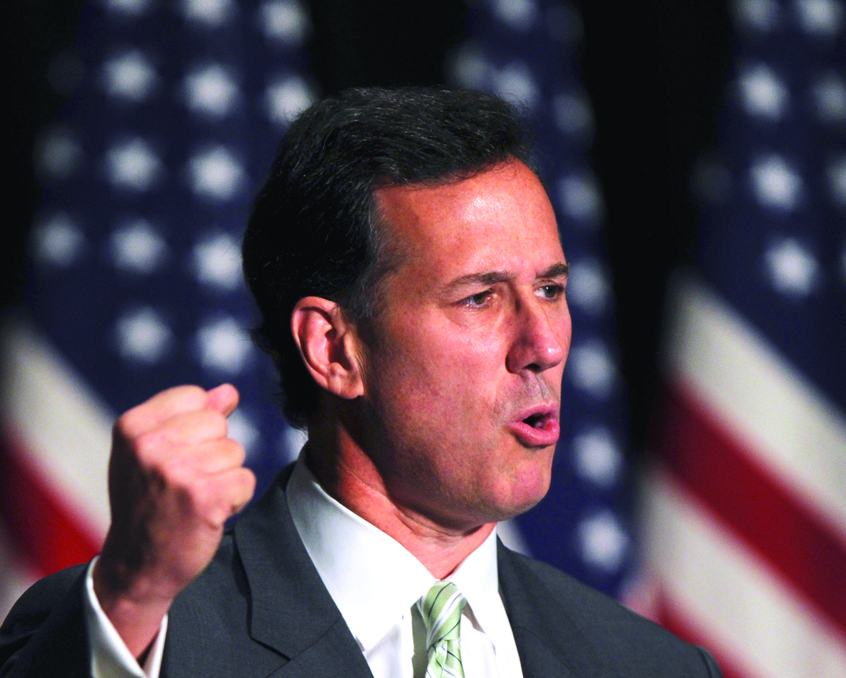
Both Obama and Romney shift toward general election in November
Ramsey Kincannon
News Editor
It seems that Mitt Romney, the “inevitable” candidate, has finally won out after a long and grueling primary battle, which featured millions of dollars of attack advertisements on all sides. Rick Santorum announced Tuesday that he was suspending his campaign and called Mitt Romney to concede at 1:30 p.m. While Santorum didn’t specify why he was ending his campaign, he alluded to his recently-hospitalized daughter’s illness, among other reasons.
Calling his race “as improbable as any race you will ever see for president,” the socially conservative former governor of Pennsylvania started out as an afterthought, demanding more time at debates while major contenders like Rick Perry, Herman Cain and Michelle Bachmann faded. By canvassing tirelessly across Iowa, the first primary state, he was able to foster a lot of grassroots support that aided him in several primary wins across the country. John Brabender, Santorum’s senior strategist, said that Romney had requested a meeting in the near future, presumably to discuss a possible Santorum role in a Romney administration.
Shifting to the general election, a Washington Post-ABC News poll recently suggested that President Obama holds “clear advantages over Mitt Romney on personal attributes and a number of key issues, but remains vulnerable to discontent with the pace of the economic recovery.” Obama has leads on protecting the middle class, addressing women’s issues, international affairs, and health care, but the poll is incredibly competitive when it comes to the economy and jobs. On that crucial campaign point, Romney is trusted equally to Obama. Romney has a large lead when voters were polled over who would do a better job of dealing with the federal budget deficit, which currently stands at over $15 trillion.
Romney, the former governor of Massachusetts, was formerly the chief executive at Bain Capital, an investment firm. Recently, the Wall Street Journal analyzed the 77 businesses that the firm was involved in while Romney was the leader of the group. 22 percent had filed for bankruptcy reorganization, and 8 percent wasted all the money Bain invested. However, the majority of other businesses have been successful. While voters respect and admire Romney for his business savvy and experience, he has run into issues defending his brand of conservatism, which is more moderate than most of the other GOP presidential candidates.


Glad Mr Santorum is fianlly out of the way!